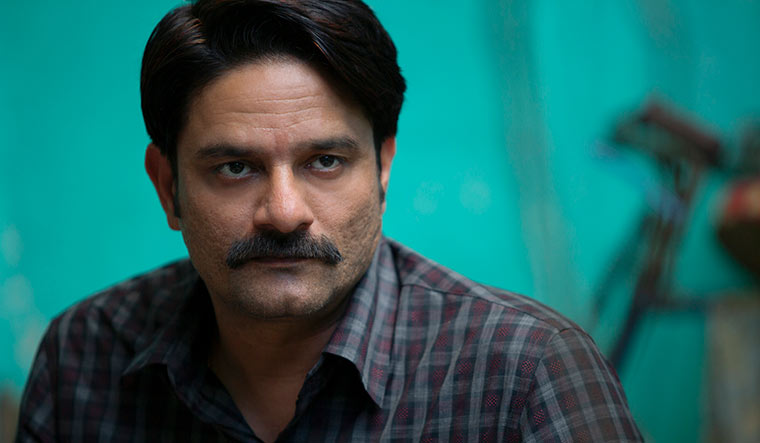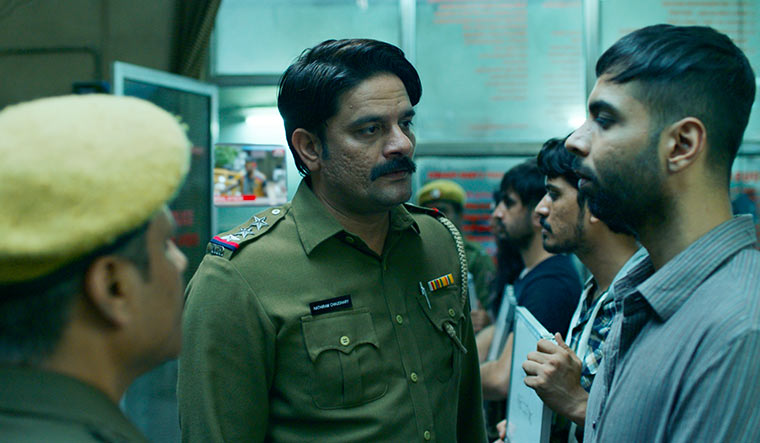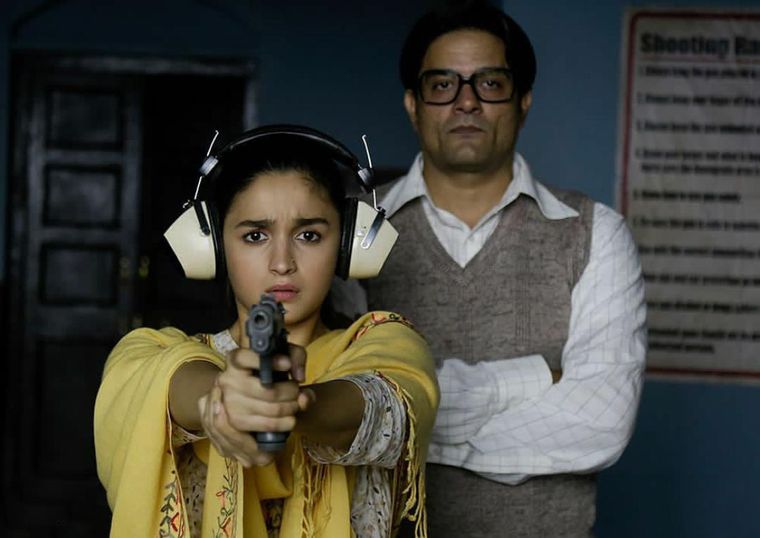He is a man at odds with life, vulnerable and unsure about everything. Professionally and personally, Hathiram Chaudhary is down and almost out. No one expects anything from the Delhi police inspector. But then there is an attempt to murder a high-profile, prime-time journalist. Four suspects are nabbed. And surprisingly, Chaudhary is asked to investigate the case, gradually revealing the twisted tales from media and bureaucracy.
Jaideep Ahlawat, who plays Chaudhary in Amazon Prime Video’s new series Paatal Lok, says, “Hathiram is so vulnerable that you will start loving him, sympathise with him. He is fighting really hard to be sincere in what he does. He is fighting for the space he deserves.” It was interesting to study the perseverance of Hathiram, his need and determination to always keep looking for the truth. The role, he says, often reminded him of his father, a teacher (now retired) in Kharkhara village in Haryana and also a common man struggling with his day-to-day life. “I have picked up his traits, the way he walks, his body language,” says Ahlawat.
Paatal Lok, reportedly based on Tarun J. Tejpal’s The Story of My Assassins (not credited in the show), takes the audience to the dark alleys of the political and the powerful, exploring the depths of human and societal immorality.
When Ahlawat talks of Chaudhary’s struggles, it seems like he is alluding to his journey in the entertainment industry, a journey that has been often marred with typecasting. He graduated from the Film and Television Institute of India in 2008, and started his film career with a negative role in Khatta Meetha (2010). While his portrayal of Shahid Khan in Gangs of Wasseypur (2012) was noticed and applauded, it did not boost his career. And, he had to contend with playing a string of negative characters in films like Commando and Vishwaroopam (both 2013). The negative streak came to an end with Raazi (2018), where he played Khalid Mir, the Intelligence Bureau training officer. Though it was a positive role, Ahlawat was still the tough guy.
“I was always the sure one,” he says of the characters he has played so far. “I think that people often take my physical traits—tall and broad—at face value. Maybe that’s why I am always cast in such roles.” But strong men can be vulnerable, too, says Ahlawat. “We all go through weak moments and (such) life experiences are enough to tap into the vulnerable aspects of a character,” he says. “It is good that finally someone else also thought that I could play a character like this, something that no one could explore so far.” All he hopes for is getting something new in every film. “Because every film has a tendency of stereotyping you,” he says, adding that after Raazi, he was offered roles that were similar to Khalid Mir. “Even now I know that I will start getting cop roles. It is not that I won’t do another cop role. I will do it by bringing a new twist to the character.”
But Ahlawat did not always want to be an actor; he dreamt of donning the olive green. But his Army dreams were shattered when he could not clear the entrance exam. Theatre helped him cope with that failure, and paved the way for his acting career. Unlike many who would talk of their struggles in this industry, Ahlawat chooses to see it all as a “nice experience”. “To be honest, I never thought I would become an actor. Fauji banna tha, aur actor ban gaye [I wanted to be a soldier, instead I became an actor],” he says. “Since then, I have had no other life but that of an actor. It’s good, isn’t it? Sometimes, I feel it could have been better. But this is a part of life.”
Being too eager and rushing through your journey, he believes, may not work. “There are many examples of people who rushed and failed, while there are also examples of people who took it slow and excelled. Hum bhi maan lete hain ki hum lambi race ke ghode hain, iss liye thoda dheere chal rahe hain [I also believe that I am in for the long run, and therefore I am taking it slow].”
Growing up, Ahlawat used to entertain villagers with his dance performances, sneaking into any and every wedding or celebration. “I love dancing. I still dance. Maybe not everywhere, but I find it a form of expression, a way to liberation,” he says.
No one in the film industry, however, has discovered his singing, dancing side. “There are times I feel that people should just stop the [serious] roles they are giving me and instead give me something fun where I, too, get to dance, romance a girl, do comedy,” he says, laughing. “If someone has found the vulnerability in me, I am sure soon people will also find the light-hearted guy that exists in me.”
He will next be seen in Tryst With Destiny, which recently won the best screenplay award at the Tribeca Film Festival; Maqbool Khan’s Khaali Peeli, and a short film for Netflix directed by Shashank Khaitan. For now, like most of us, Ahlawat is home, rereading his huge collection of Hindi literature and binge-watching shows like Lucifer and Unorthodox.




